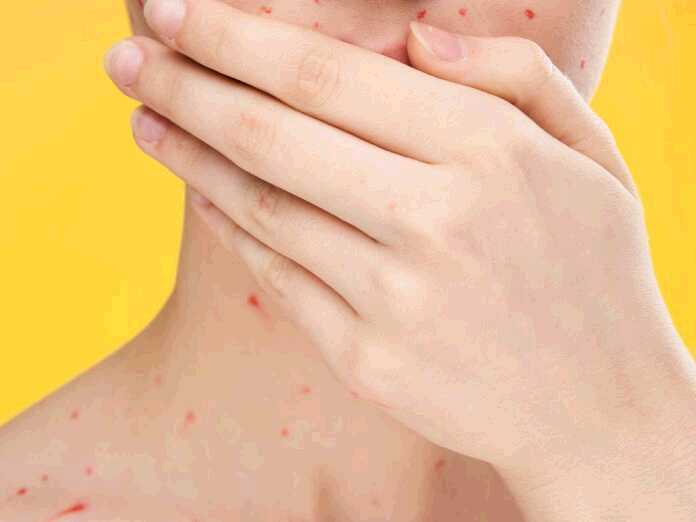
Varicella-zoster virus is the microbe responsible for chickenpox. It’s very contagious, with symptoms including tiredness, headache, and an itchy rash that transforms into fluid-filled blisters. The blisters and rash can spread throughout your body.
Sometimes you may have chickenpox inside your mouth because the virus reached your mucous membrane. You need to bear the infection until it subsides, but there are some medications and treatments that can alleviate the symptoms.
Treatment with Medication
A number of medications are effective against chickenpox and its symptoms. They help with itchiness and blisters or in reducing fever. If you get a more serious infection, a doctor might prescribe antiviral drugs.
- Benadryl is an antihistamine, which helps you get rid of the itchiness.
- Tylenol is a pain reliever that can stop fever, but be careful not to take too much – it can affect your liver.
- Prescription ointments contain antibiotics and are effective in taking care of the blisters.
- Local anesthetics can treat chickenpox in your mouth.
- Zovirax and Valtrex are antiviral drugs prescribed in case of a serious infection.
Home Remedies
The following treatments can help you deal with discomfort if blisters appear in your mouth. They will make eating more comfortable, and speed up recovery.
- Cold foods and drinks numb the infected area and reduce effects of the infection.
- Drink a lot of water or other fluids. If you dehydrate, your symptoms may get worse.
- Mind your diet. You should steer clear from any hot or spicy foods to avoid irritation.
- Brush your teeth, rinse your mouth, and gargle with Hygiene prevents further infection and eases the existing symptoms.
Final Thoughts
In most cases, a chickenpox infection is not serious and can be effectively treated. There are very few cases of patients being hospitalized due to chickenpox. Even though you may have chickenpox inside your mouth, this does not necessarily mean your condition is worse than others.





























